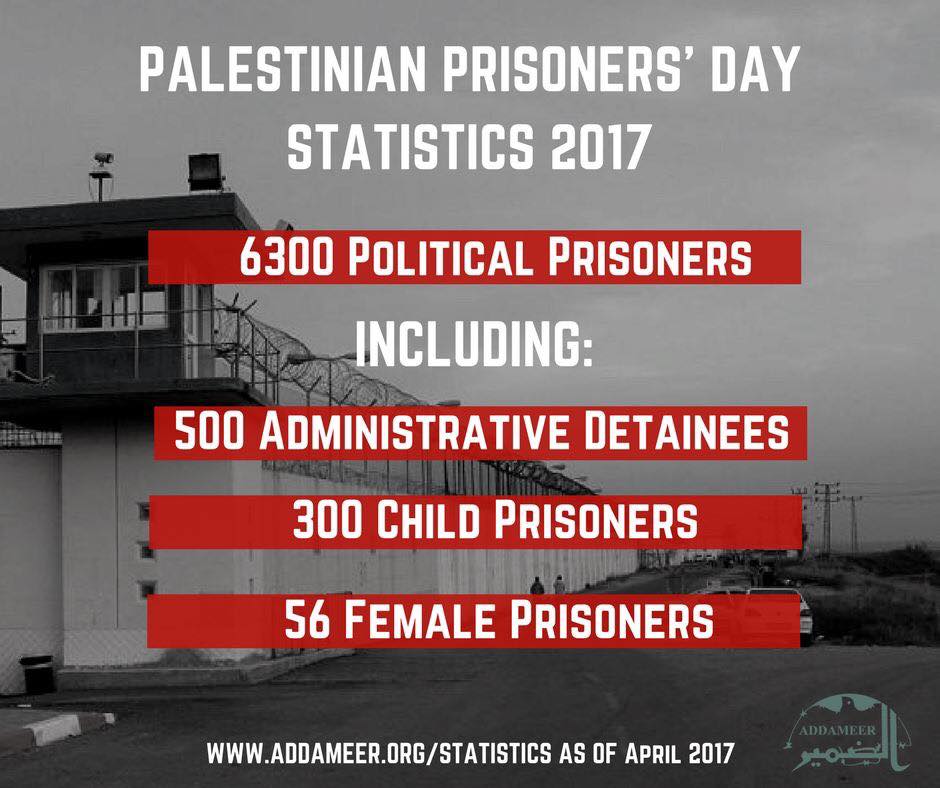
Please cut and paste letter below into email and send to Permanent Mission of Israel to the United Nations
info-un@newyork.mfa.gov.il. and palestine@un.int
or
http://embassies.gov.il/un/AboutTheEmbassy/Pages/contact-us.aspx
and a copy to the Israeli embassy in your country https://embassy.goabroad.com/embassies-of/israel
(Australia only Cc: info@canberra.mfa.gov.il, julie.Bishop.MP@aph.gov.au, senator.dinatale@aph.gov.au , senator.wong@aph.gov.au, )
SUGGEST YOU RESEND THE EMAIL EVERY DAY OF THE HUNGER STRIKE
………………………….
Permanent Mission of Israel to the United Nations
To the government of Israel
“Israel’s ruthless policy of holding Palestinian prisoners arrested in the Occupied Palestinian Territories in prisons inside Israel is a flagrant violation of the Fourth Geneva Convention. It is unlawful and cruel and the consequences for the imprisoned person and their loved ones, who are often deprived from seeing them for months, and at times for years on end, can be devastating,” Magdalena Mughrabi, Deputy Regional Director for the Middle East and North Africa at Amnesty International.
I am writing in solidarity with the Palestinian Prisoner Freedom and Dignity Hunger-strike to urge the government of Israel to immediately and unconditionally
- honour and implement the demands of the prisoners
- release all political Palestinian prisoners
- c. release Marwan Barghouti from solitary confinement
The demands were announced by Marwan Barghouti, leader of the strike:
1. Installing a public telephone for Palestinian detainees in all prisons and sections in order to communicate with their families.
2. Visits:
a. Resuming the second visit that was stopped by the Red Cross.
b. The regularity of visits every two weeks without being disabled by any side.
c. No relative of the first and second level shall be prevented from visiting the detainee.
d. Increase the duration of the visit form 45 minutes to an hour-and-a-half.
e. Allow the detainees to take pictures with their families every three months.
f. Make facilities for the comfort the visiting families.
g. Allow children and grandchildren under the age of 16 to visit detainees.
3. The medical file:
a. Closing the so-called Ramle prison hospital because it does not provide the necessary treatment.
b. Ending medical negligence policy.
c. Making periodic medical examinations.
d. Performing surgeries whenever needed.
e. Allowing specialized physicians from outside the prisons.
f. Releasing sick detainees, especially those who have disabilities and incurable diseases.
g. Medical treatment should not be at the expense of the detainee.
4. Responding to the needs and demands of Palestinian women detainees, whether by special transport or direct meeting without a barrier during the visit.
5. Transportation:
a. Accord humanitarian treatment for detainees during their transport.
b. Return detainees to jails after the clinics and courts and do not keep them at the crossings.
c. Prepare the crossings for human use and provide meals for detainees.
6. Add satellite channels that suit the needs of detainees.
7. Install air conditioner in prisons, especially in the prisons of Megiddo and Gilboa.
8. Restore the kitchens to all prisons and place them under the supervision of Palestinian detainees.
9. Allow them to have books, newspapers, clothes and food.
10. Ending the policy of solitary confinement.
11. Ending the policy of administrative detention.
12. Allow them to study at the Hebrew Open University.
13. Allow detainees to take the Tawjihi matriculation exams in an official and agreed manner.
Sincerely




